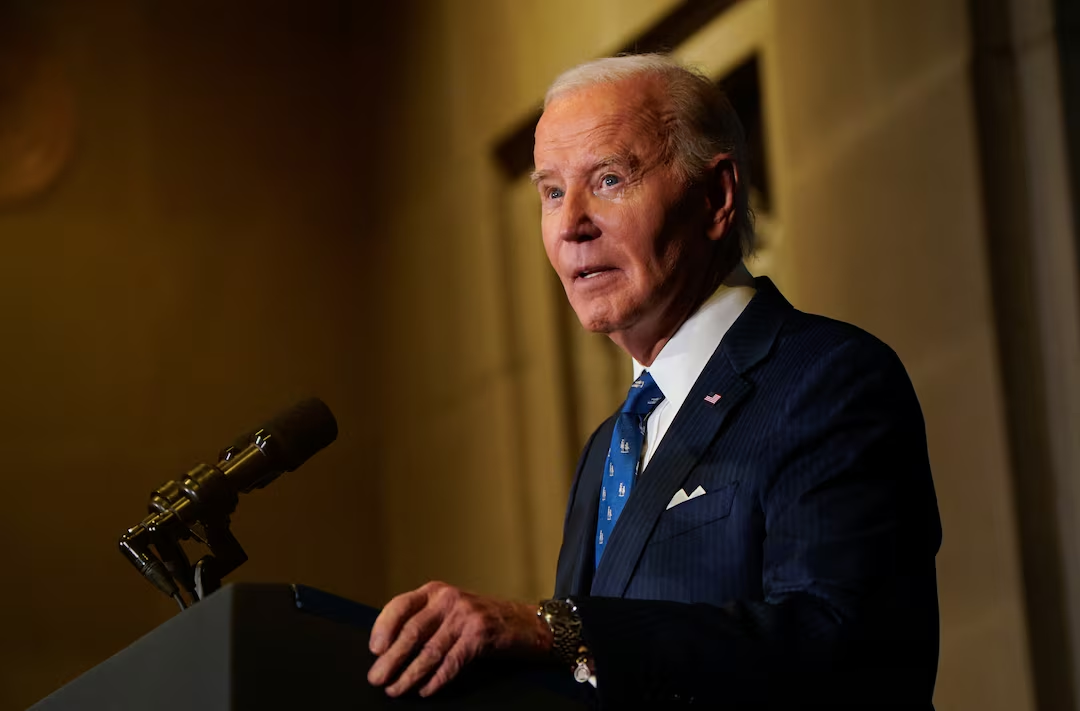Commuted Sentences Signal Huge Step in Drug Reform
President Joe Biden has taken a bold step towards major drug reform. By commuting the sentences of several individuals convicted of drug-related offenses, he has advanced criminal justice reform and ignited conversations across the country.
What Does Biden’s Mercy Mean for Drug Reform?
President Joe Biden’s decision to commute sentences is being hailed as a pivotal move in addressing systemic issues within the U.S. criminal justice system. The initiative reflects his administration’s commitment to reimagining outdated policies that disproportionately affect marginalized communities.
Drug reform has long been a contentious issue in the United States. The “war on drugs” policies of the past have led to mass incarcerations with a heavy emphasis on non-violent drug crimes. Now, Biden’s decision signals a shift away from punitive measures and toward mercy-driven reforms.
It’s worth noting that this move aligns with Biden’s broader agenda of criminal justice reform, focusing on fairness and reducing racial disparities in law enforcement. According to official statements from the White House, these commutations are just the beginning of a more compassionate approach to drug-related convictions.
Who Is Affected by These Commutations?
The individuals benefiting from these commutations are primarily non-violent drug offenders. Many of them were serving disproportionately long sentences under mandatory minimum laws that have since been criticized as overly harsh.
Biden’s orders immediately reduce federal prison sentences, giving these individuals a second chance at life. For context, many of those impacted were first-time offenders or individuals charged with minor drug infractions—crimes that today may no longer carry such severe penalties due to evolving drug laws.
This decision underscores the administration’s focus on correcting past wrongs and alleviating the burden of outdated policies on vulnerable individuals.
The Emotional Impact of Biden’s Mercy
This move is more than a political statement—it’s a profound act of compassion. Families torn apart by lengthy incarcerations can now reunite, offering renewed hope and healing. Communities plagued by the effects of mass incarceration might finally begin to recover and rebuild.
Loved ones of those affected have expressed overwhelming gratitude. For years, they’ve lived through the trauma of seeing a family member incarcerated for what many see as minor infractions. Biden’s actions provide relief and a sense of justice that many believed would never come.
Organizations advocating for prison and drug policy reforms, including the Drug Policy Alliance, have praised the move as a step in the right direction. They’re hopeful that this decision will inspire further reforms across both state and federal systems.
Major Drug Reform in Context: Why This Matters
To fully appreciate the importance of this policy, it’s essential to understand the broader context of American drug laws. The “war on drugs,” initiated in the 1970s, created a legacy of mass incarceration. Policies like mandatory minimums forced judges to impose strict penalties, even for petty drug offenses.
According to an analysis by The Sentencing Project, nearly 1 in 5 people incarcerated in the U.S. are serving time for drug-related offenses. Critics argue this system unfairly targets minorities, perpetuating racial and economic injustices.
Biden’s intervention not only helps alleviate overcrowded prisons but also addresses the human cost of these laws. It’s a sign of efforts to undo harmful consequences of past policies.
What’s Next for Drug Policy Reform Under Biden?
Biden’s latest announcement sparks questions about what comes next. The administration has vowed to continue addressing the war on drugs and its impact. But will commutations alone be enough?
Many experts are calling for a broader reassessment of drug policies. Decriminalization of certain substances and investments in harm reduction strategies—such as funding addiction treatment programs—are some of the measures advocates hope to see implemented.
Biden’s commutations could also influence state laws. While federal action is powerful, many drug-related convictions occur at the state level. Activists hope that this move creates momentum for state legislatures to follow suit.
For more insights into how this development might shape the future of drug policies, visit Zex News.
Why Biden Grants Mercy: Personal Convictions and Politics
Some analysts suggest that Biden’s decision to grant mercy is as much a personal conviction as it is a political move. Known for his empathy and focus on social justice, Biden has consistently highlighted the need to prioritize fairness and second chances.
Politically, this decision also reinforces his administration’s commitment to progressive values. With the 2024 elections on the horizon, this decision may strengthen Biden’s position among younger voters and activists demanding change.
However, critics argue that the action still falls short of transformative change. They urge Biden to push further and address systemic inequalities that fuel inequities in the justice system.
Biden’s Sentence Commutations: A Step Toward Hope
Despite its limitations, this move represents progress. For the individuals and families impacted, Biden’s mercy means the world. It’s a powerful reminder that people can change, societies can evolve, and injustices can be righted.
President Joe Biden’s decision to commute sentences as part of major drug reform is a victory for justice reform advocates and a step toward healing the nation. It’s a moment in history that shows the potential for compassion to reshape broken systems.
Stay tuned for updates on how this decision will impact broader conversations about criminal justice and drug policy in the United States.
“`





